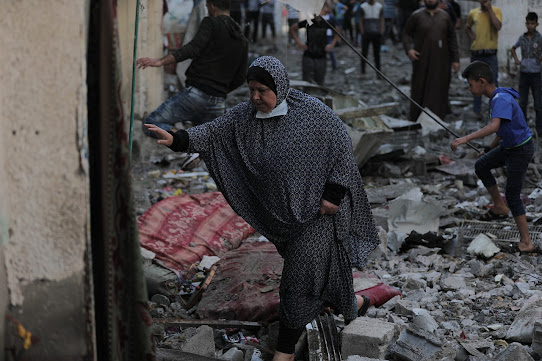 |
| How culpable are Gazans for Hamas' sins? Photo: Pixabay/hosnysalah |
One key argument underpinning Israel's ruthless punishment of Gazans is this: you elected Hamas, which carried out this brutal terror attack on our people and still holds many of them as hostages. And that makes you equally deserving of the same punishment that we are dishing out to Hamas.
This argument is not something unique to Israel. When Indian tested a nuclear bomb, the United States imposed sanctions on the country, arguing that the people who elected the government that tested the bomb has to be punished.
It is an argument that conveniently ignores that you cannot punish a regime in isolation and makes up for that by justifying collective punishment.
It also ignores the troubling moral question whether the people of a country, who are themselves hostages to a brutal regime, can be blamed for the actions of the regime. That applies, for example, to Iran and Iranians, and to some extent to Gazans.
But those questions are conveniently ignored and the moral responsibility of electing a government that is deemed by the West as against its interests and has the gall to implement steps on the international arena to weaken western domination is often pinned on the unfortunate people.
The West's preachers of democracy ignore the fact that every people has the right to elect a government that they think represents their best interests. That is based on the West's own definition of democracy, which it is now preaching to the world (even as it aids dictators and monarchs where convenient).
And based on that paradigm, the only important thing is whether the electoral process was followed correctly.
But here again we see two different sets of rules. If a government moves against an opposition that is corrupt but supportive of the west's interests, it is seen as thwarting the legitimate democratic process. This has played out again and again recently in many countries where governments have taken on the West's interests.
But the same West, especially the United States, is doing everything it can to prevent its main opposition candidate from coming to power, justifying its actions with the heavy hand of law and some very unconvincing arguments. They forget that the same arguments would have invited condemnation from the West if it was another country.
Coming back to the moral question and the assigning of responsibility: the bottom line is that any people who elect a government that is going against western interests can be punished. That means the people of a country have to be well aware that they could be punished with starvation and economic denial if they elect a government that is very good for them, but also not so good for the West. Increasingly, as people and countries find their voice, this is going to play in repeat.
Well, that seems to be the rules-based international order that the West is pushing these days.
But are the people in many countries aware of these risks? And if they aren't aware, can they be punished?
Which then takes us to the question: is democracy even practical under such rules?
Which takes us to the question: who framed these rules, and who gave them the authority to frame these rules and impose them on the world?
No comments:
Post a Comment